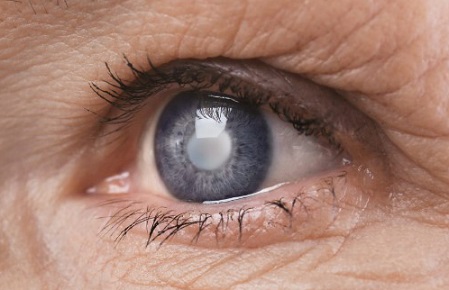Nikhil Prasad Fact checked by:Thailand Medical News Team Jun 11, 2024 1 year, 8 months, 2 weeks, 2 days, 6 hours, 6 minutes ago
Glaucoma News: Glaucoma, a leading cause of blindness worldwide, is a neurodegenerative disease characterized by the progressive loss of retinal ganglion cells and optic nerve damage. Traditionally, the management of glaucoma has focused on controlling intraocular pressure (IOP), the only modifiable risk factor. However, recent research highlights the potential of neuroprotective agents to enhance glaucoma treatment. One such agent, neuroglobin (Ngb), a small protein highly expressed in the brain and retina, shows promising neuroprotective properties.
 Neuroglobin: A New Hope for Glaucoma Treatment
The Promise of Neuroglobin
Neuroglobin: A New Hope for Glaucoma Treatment
The Promise of Neuroglobin
Neuroglobin, first discovered in 2000, has been extensively studied for its role in protecting neurons from various types of damage. In vitro studies have demonstrated that Ngb overexpression can protect neurons and astrocytes in the brain and retina from injury. Recent research has extended these findings to in vivo models, where Ngb has shown potential in mitigating damage from stroke, retinal ischemia, and optic nerve disorders.
Experimental Glaucoma Model
A team of researchers from the Singapore Eye Research Institute, Singapore National Eye Centre, Duke-NUS Medical School-Singapore, Yong Loo Lin School of Medicine-National University of Singapore and the University of Tokyo-Japan conducted a study that is covered in this
Glaucoma News report, using a microbead-induced model of experimental glaucoma (EG) in six Cynomolgus primates. The goal was to investigate whether intravitreal injections of Ngb (IVT-Ngb) could mitigate optic nerve structural damage and reduce microgliosis and astrogliosis, inflammatory responses commonly seen in glaucoma.
Methodology
The researchers used a modified microbead injection technique to induce ocular hypertension in the primates' eyes, mimicking the conditions of glaucoma. Intravitreal injections of Ngb were administered to one eye of each primate, while the other eye received a sham injection of balanced salt solution. Over ten months, the team monitored changes in optic nerve structure using optical coherence tomography (OCT) and assessed inflammatory responses through histological analysis.
Neuroprotective Effects of Ngb
The study revealed that IVT-Ngb-treated eyes exhibited significantly less thinning of the peripapillary minimum rim width, retinal nerve fiber layer thickness, and optic nerve head cupping compared to untreated eyes. These findings were corroborated by immunohistochemistry, which showed that Ngb-treated eyes had reduced activation of complement 3 and cleaved-caspase 3, markers of inflammation, in optic nerve astrocytes and microglial cells.
Mechanism of Action
The neuroprotective effects of Ngb appear to stem from its ability to reduce oxidative stress and inflammation in the optic nerve. Ngb-treated astrocytes showed decreased production of pro-inflammatory cytokines and less activation of caspase 3, a protein involved in cell death. This shift towards a neur
oprotective phenotype in astrocytes likely contributes to the preservation of retinal ganglion cells and overall optic nerve integrity.
Implications for Glaucoma Treatment
These findings suggest that Ngb could be a valuable addition to current glaucoma treatments, offering a neuroprotective strategy to complement IOP-lowering therapies. By mitigating structural damage and reducing inflammation, Ngb has the potential to slow the progression of glaucoma and preserve vision in patients who do not respond adequately to IOP control alone.
Future Directions
While this study provides compelling evidence for the neuroprotective effects of Ngb in a primate model of glaucoma, further research is needed to confirm these findings in larger and more diverse populations. Additionally, clinical trials will be essential to determine the safety and efficacy of Ngb in human patients with glaucoma. The development of optimal dosing strategies and delivery methods will also be crucial to maximize the therapeutic potential of Ngb.
Conclusion
The study on neuroglobin offers a promising new avenue for glaucoma treatment, highlighting the potential of neuroprotective therapies to complement traditional IOP-lowering strategies. As research progresses, Ngb may emerge as a key player in the fight against glaucoma, offering hope for better management and preservation of vision for millions of patients worldwide.
The study findings were published in the peer-reviewed journal: Biomolecules.
https://www.mdpi.com/2218-273X/13/6/961
For the latest
Glaucoma News, keep on logging to Thailand Medical News.
Read Also:
https://www.thailandmedical.news/news/breaking-glaucoma-news-italian-study-shows-that-tau-proteins-also-play-a-role-in-glaucoma
https://www.thailandmedical.news/news/breaking-covid-19-news-chinese-study-discovers-that-sars-cov-2-increases-the-risk-for-developing-acute-angle-closure-glaucoma
https://www.thailandmedical.news/news/breaking-covid-19-news-study-claims-that-omicron-infections-can-lead-to-acute-primary-angle-closure-and-also-primary-angle-closure-glaucoma
